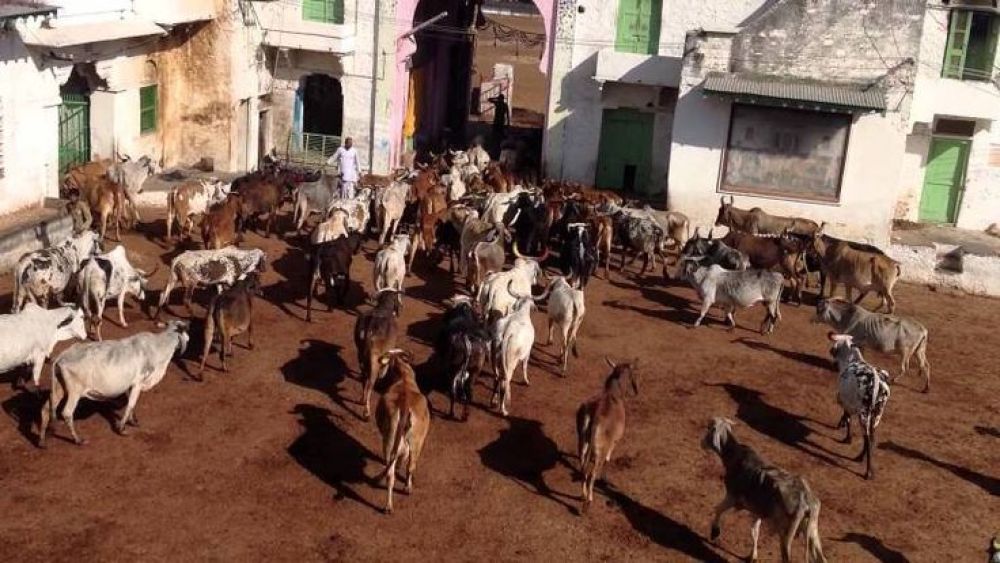

Nestled within the Aravalli Hills of Rajasthan, Nathdwara is a town that is synonymous with piety and cultural heritage. It is famously known for the Shrinathji Temple, a significant pilgrimage spot for devotees of the Vaishnava sect. The history of tourism in Nathdwara is intricately linked to religious tourism, with the town being a prominent hub for Krishna worshippers since the 17th century.
It all began when the image of Shrinathji, a deity form of Lord Krishna, was transferred to Nathdwara from Vrindavan in 1672 to protect it from the destructive wrath of Mughal Emperor Aurangzeb. From that time onwards, Nathdwara became a haven for pilgrims seeking the darshan (holy glimpse) of Shrinathji.
One of the central aspects of Nathdwara's religious life is the Gaushala. Gaushala, which translates to cow shelter, plays a crucial role in the daily rituals and economy of Nathdwara. As a town that has always revered cows, considered sacred in Hinduism, the Gaushala of Nathdwara has been a point of interest for both devotees and tourists. Its importance is not just religious but also cultural as it provides an insight into the traditional practices of cow care and dairy production in India.
Over the years, the influx of tourists to Nathdwara has not just been confined to religious tourism alone. Art tourism has taken a significant hold in the region with Nathdwara’s Pichwai Paintings, a traditional Rajasthani art form that depicts scenes from Lord Krishna’s life, gaining international fame. Visitors flock to the town to purchase these intricate works of art, thus broadening the scope of tourism.
Additionally, Nathdwara serves as a gateway to Rajsamand Lake, which is an astonishing work of royal architecture and engineering, offering a tranquil spot for leisure tourism. The town is also a starting point for travellers looking to explore the historically rich regions of Mewar, as well as eco-tourism destinations in the surrounding Aravalli range.
The latest trend in the tourism sphere of Nathdwara is the incorporation of modern lodging facilities and the promotion of local cuisine. Homestays and boutique hotels that showcase Rajasthani hospitality are helping to transform the town from a day-visit pilgrimage spot to a place where tourists can immerse themselves fully in the locale.
Experiential tourism is also on the rise, with visitors seeking authentic experiences like participating in temple rituals, exploring the town's winding lanes, and engaging with local artisans. The seasonal festivals, especially during important dates on the Hindu calendar such as Janmashtami (Lord Krishna's birthday), attract a surge of visitors, adding a vibrant facet to Nathdwara’s tourism scene.
As tourism continues to grow in Nathdwara, the town steadily adapts, ensuring that visitors can have a comfortable and enriching experience while preserving the sanctity and cultural authenticity that makes Nathdwara a unique and captivating destination.